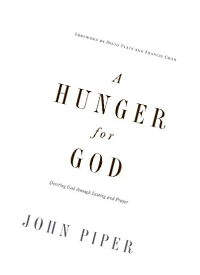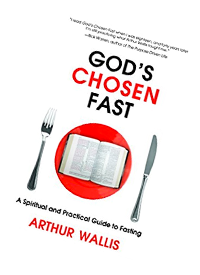Back to series
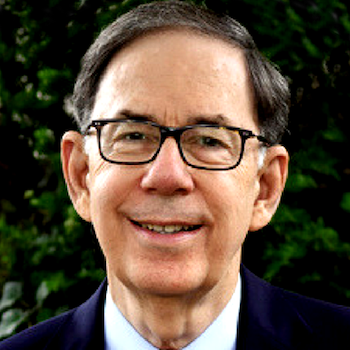
Recommended Reading:

Download or Listen to Audio
The Placing of Fasting in the Christian Life
Click here to open a Print - Friendly PDF
Judging from recent research and anecdotal evidence, it appears that very few professing Christians in America think fasting has a place in the Christian life. Available evidence shows that we much prefer feasting! Yet from the earliest days of the church, fasting has been recognized as an important way to draw near to God, deepen one’s relationship with Him, and seek His help in times of special need. Nearly all of the great spiritual leaders of the church, as well as ordinary believers who have been noted for their devotion to God, have practiced fasting.
 If you desire a deeper, more intimate and fruitful relationship with God, or if you need His help in a time of real need, fasting is an important means of grace to practice. This article will provide helpful understanding and practical guidance for anyone who wants to experience this blessing.
If you desire a deeper, more intimate and fruitful relationship with God, or if you need His help in a time of real need, fasting is an important means of grace to practice. This article will provide helpful understanding and practical guidance for anyone who wants to experience this blessing.
The best place to start is with a definition of fasting. In the Old Testament, the main Hebrew word used is tsom, which means “to abstain from food.” In the New Testament, the Greek word we translate as “fast” is nesteuo, which means “to abstain from eating.” In both testaments, fasting is simply going without food in order to seek God for some special reason. Although the purposes for which we seek God may vary, going without food does not. This is an important distinction, because today there is a tendency to expand the word fasting to include things other than food, such as television, movies, internet, social media, or cell phones. Although it is certainly right to abstain from any number of things that are hindering our relationship with God, that is not what the Bible means by fasting. Such abstaining is better described as “saying no” to some form of worldliness or harmful fleshly indulgence. To reiterate, in the Bible, the word fasting means going without food, the purpose of which is to earnestly seek God in prayer.
People unacquainted with fasting may not see any compelling reason to do it. Various ideas come to mind to justify ignoring the practice: it would be too hard; it would make me miserable; it has been abused in the past; it might harm my body, and so on.
This raises a natural question, why would anyone want to go without food? The basic answer is that we are weak and needy people, and life is sometimes extremely difficult. Fasting is God’s appointed way for us to cry out to Him in situations of special need. If, as John Stott suggests, Jesus’s exhortation to “ask, seek and knock” in prayer (Matt. 7:7) “may deliberately be in an ascending scale of urgency,”1 we might think of prayer with fasting as knocking loudly on the gates of heaven. We resort to fasting out of a deep sense of our weakness and need in order to seek God in a more urgent, earnest, and heartfelt manner for something of great importance to us or to His kingdom. It is a response of faith to God’s promise, “You will seek me and find me, when you seek me with all your heart” (Jer. 29:13), and, “call upon me in the day of trouble; I will deliver you, and you shall glorify me” (Ps. 50:15).2 Fasting shows God that we are desperate for His help and seeking His attention by the extraordinary measure of forsaking our necessary food, so that our voice might be heard on high. When we come to God in this way, privately and out of public notice, fully aware that we deserve nothing from Him and can earn nothing by fasting, but that He is a gracious, generous, and loving Father who cares about us, we can be sure that God does indeed hear (Matt. 6:16–18). Of course, this does not guarantee that He will grant exactly what we seek; He may or may not. Ultimately, in His wisdom, He will give us what He knows is best for us in the situation.
What are some of the reasons biblical people fasted? They cover a range of things, including national emergencies, deliverance from danger, protection, help in sickness or some other difficult situation, special guidance, and humbling oneself before God and drawing near to Him. Sometimes grief, mourning or lamentation, or sorrow over a particular sin or sins were reasons for fasting, as well as breaking bondages to certain sins. Fasting is also connected with seeking deliverance for the oppressed. In some instances, it is involved in receiving revelation from God.
Some Biblical Examples
In the Old Testament, every Israelite was called to fast on the annual Day of Atonement (Lev. 23:27–28). This was a sign of humbling and repentance before God as they sought His forgiveness for their sins.
Moses fasted from food and water in two back-to-back fasts, lasting a total of eighty days while he was meeting with God on Mt. Sinai and receiving divine revelation (Exod. 34:28; Deut. 9:9–10:10 ).
Daniel observed a partial fast for twenty-one days, at the end of which God gave him revelation into important aspects of Israel’s future (Dan. 10).
Hannah was barren, heartbroken, and desperate for a child. She sought God in prayer and fasting, and He answered her with the birth of Samuel, one of the great leaders of the Old Testament (1 Sam. 1:1–20).
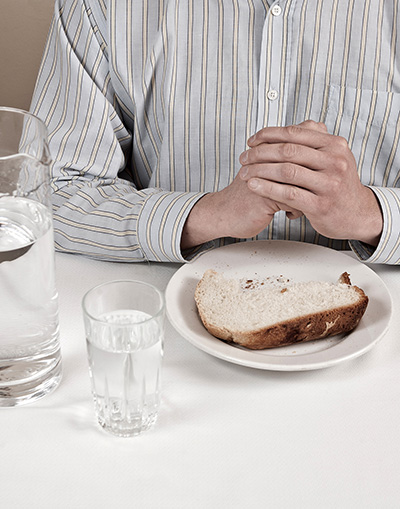 While exiled in Persia, Ezra was commissioned by the king to help with the restoration of Israel and the proper worship of God. He proclaimed a fast among the Jewish exiles to ask God for safety and protection on the dangerous journey he and others were to take back to Israel. God answered them (Ezra 8:21–23).
While exiled in Persia, Ezra was commissioned by the king to help with the restoration of Israel and the proper worship of God. He proclaimed a fast among the Jewish exiles to ask God for safety and protection on the dangerous journey he and others were to take back to Israel. God answered them (Ezra 8:21–23).
Also while in exile, Nehemiah, deeply grieved about the condition of Israel and especially of Jerusalem, began to fast and pray. God gave him favor with the king and answered with a commission to return to Jerusalem and rebuild the city’s walls (Neh. 1:1–2:8).
Times of national emergency or disaster were reasons for the whole nation to seek God’s help through fasting and prayer. Esther called all the Jews to fast to prevent their impending destruction (Esth. 4:16). God graciously answered.
When King Jehoshaphat was told that a vast army was marching toward Judah to attack, he “set his face to seek the Lord and proclaimed a fast throughout all Judah” (2 Chron. 20:3). God answered with an extraordinary deliverance.
God even answered the fasting, prayer, and repentance of Nineveh, the cruelest, most vicious and bloodthirsty nation of the ancient Near East (Jonah 3).
In the New Testament, fasting continues to have a significant place in the life of the church and of individual believers. We see prophetic words given to Jesus’s parents by the prophetess Anna, who “did not depart from the temple, worshiping with fasting and prayer night and day” (Luke 2:37).
Jesus Himself fasted for forty days in preparation for His public ministry and for the ability to overcome the devil’s temptations to derail it (Matt. 4:1–11).
Jesus clearly expected that His followers would fast (Matt. 9:14–15) and said that if they did so with proper motives, God would see and reward them (Matt. 6:16–18), just as He rewards those who pray with proper motives (Matt. 6:5–6).
The apostolic church took Jesus’s teaching on fasting seriously. After being blinded at the sight of Jesus on the road to Damascus, Saul of Tarsus fasted for three days. At the end of this period, Jesus sent Ananias to pray for him to recover his sight, be baptized, and filled with the Holy Spirit (Acts 9:1–19).
Fasting was a prominent factor in one of the most significant events in mission history—the launching of the first missionary journey in the history of the church. While Saul and Barnabas and three other friends in the church at Antioch “were worshiping the Lord and fasting, the Holy Spirit said, ‘Set apart for me Barnabas and Saul for the work to which I have called them’” (Acts 13:1–2). The church, after a time of fasting and prayer, sent them off on a mission of evangelism and church planting. On their journey, Saul and Barnabas established churches “and appointed elders for them in every church, with prayer and fasting” (Acts 14:23).
Fasting in Subsequent Church History
In the early church, fasting was highly valued. Those who could do so fasted on Wednesdays and Fridays until 3 p.m. But in the fourth century, with the rise of Constantine and the end of persecution, the church changed dramatically. Worldliness and institutionalism increased markedly, bringing an emphasis on form, ritual, and liturgy. Fasting became more legalistic and, for many, works oriented. In spite of abuses, Augustine, the desert fathers, and other godly people continued to commend its frequent proper use as an important practice for spiritual life and growth.
 In the sixth century, fasting was made obligatory at the Second Council of Orleans; during the Middle Ages, many additional obligatory fast days were added. This only worsened the problems of legalism and works righteousness for many people. On the positive side, however, the Irish monks who evangelized England and Northern Europe during this period practiced fasting and prayer to good advantage in their missions.
In the sixth century, fasting was made obligatory at the Second Council of Orleans; during the Middle Ages, many additional obligatory fast days were added. This only worsened the problems of legalism and works righteousness for many people. On the positive side, however, the Irish monks who evangelized England and Northern Europe during this period practiced fasting and prayer to good advantage in their missions.
The Protestant Reformers rejected obligatory Catholic fast days but cautiously retained fasting as a valuable practice. Martin Luther and John Calvin praised its value and encouraged its proper use. Jonathan Edwards and John Wesley strongly commended it to everyone, especially to those in ministry. Wesley found fasting so important that he would not ordain anyone who did not fast two days a week. In England in 1756, Wesley saw and praised God’s remarkable response to the king’s proclamation for a national fast that averted an imminent invasion by the French.
In the twentieth century, Dietrich Bonhoeffer and C.S. Lewis are among many leaders who practiced fasting and encouraged others to do so. In 1940 Lewis and all of England saw God’s incredible answer to the national day of prayer proclaimed by King George VI, which was manifested in the miraculous deliverance of 338,000 British troops at the Battle of Dunkirk. No doubt many of the faithful were also fasting in that desperate situation.
In all periods of history, there have been those who lacked money for alms and have fasted a day or two or three, using the food or money saved to feed those more impoverished than themselves.
Looking back over church history from his day, Princeton theologian Charles Hodge summed up the history of fasting this way: “All eminently pious persons have been more or less addicted to [i.e., often practiced] this mode of spiritual culture.”3
Why Fast Today?
As we saw earlier, Jesus clearly assumed that his followers would fast, though he gave no details about how long or how frequently. This means that it is up to the individual to discern the type, timing and length of their fast.
The reasons that we might fast today are similar to those of believers in past generations: to subdue the flesh and humble ourselves before God and draw near to Him (Ps. 69:10; 35:13); as part of a life of worship and devotion to God (Luke 2:37); to express sorrow and repentance for our sins and ask God’s help in breaking their power in our life; for power to resist demonic temptation and attack (Matt. 4:1–11); for the Holy Spirit’s vision, guidance, and empowerment in ministry (Acts 13:1–4); to seek deliverance for the oppressed (Isa. 58:6); for the revival of God’s church (2 Chron. 7:14); for protection of the nation in times of great difficulty or danger (2 Chron. 20:1–4); for national repentance and mercy when God’s judgment of sin is at hand (Jonah 3).
It is important to note that church leaders through the centuries up to the present (both Catholic and Protestant) have testified to the great value of fasting in subduing the flesh and helping one become more open and sensitive to the Holy Spirit’s operations, guidance, and strengthening.
Dangers to Avoid in Fasting
Common spiritual dangers in fasting include developing spiritual pride, which makes us think we are better or more spiritual than those who don’t fast; formalism, which turns fasting into a routine devoid of its true meaning and purpose; and hypocrisy, in which we try to impress others with our fasting – a perennial problem that Jesus especially warned about (Matt. 6:16–18).
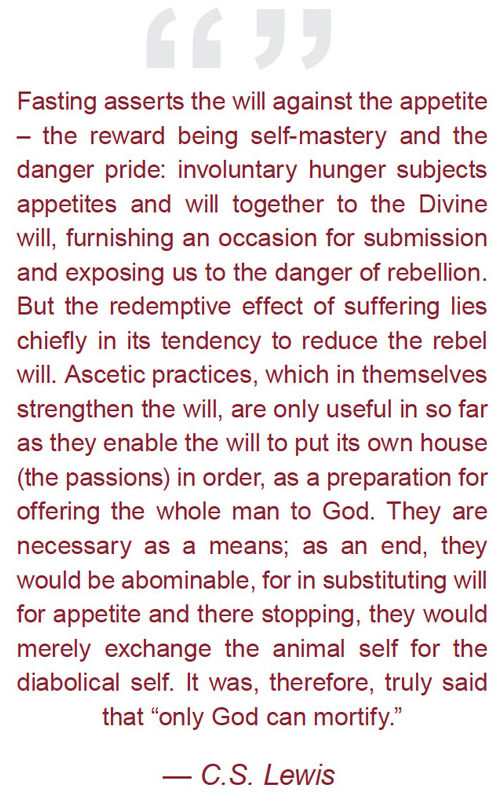 Legalism is another common danger in fasting and involves regarding it as a means of earning a better standing before God (and thus better access to His blessings). This happens when we come to see fasting as something we do for God that obligates Him to do something for us. It is a quid pro quo mentality in which our fasting funds a heavenly debit card that we can draw upon in some transactional way.
Legalism is another common danger in fasting and involves regarding it as a means of earning a better standing before God (and thus better access to His blessings). This happens when we come to see fasting as something we do for God that obligates Him to do something for us. It is a quid pro quo mentality in which our fasting funds a heavenly debit card that we can draw upon in some transactional way.
John Wesley cautions:
Let us beware of fancying that we merit anything of God by our fasting. We cannot be too often warned of this; inasmuch as a desire to establish our own righteousness, to procure salvation of debt and not of grace is too deeply rooted in all our hearts. Fasting is only a way which God hath ordained, wherein we wait for His unmerited mercy; and wherein without any desert of ours, He hath promised freely to give us His blessing.4
John Calvin says much the same thing.
The Proper Approach to Fasting
Wesley gave some helpful guidance about the right way to fast:
First, let it be done unto the Lord, with our eye singly fixed on Him. Let our intention herein be this, and this alone, to glorify our Father who is in heaven; to express our sorrow and shame for our manifold transgressions of His holy law; to wait for an increase of purifying grace, drawing our affections to things above; to add seriousness and earnestness to our prayers; to avert the wrath of God; and to obtain all the great and precious promises He has made to us in Jesus Christ.5
Types of Fasts in the Bible
 In the Bible, the most common fast lasts for one day, from sunup to sundown. It involves refraining from all food but not from water. Most people in good health can do this fast with water, but those with problematic health conditions, are pregnant, or are taking any kind of medication should check with their physicians first.
In the Bible, the most common fast lasts for one day, from sunup to sundown. It involves refraining from all food but not from water. Most people in good health can do this fast with water, but those with problematic health conditions, are pregnant, or are taking any kind of medication should check with their physicians first.
A variation of this fast runs for twenty-four hours or more without food, but involves drinking plenty of water. Examples of three-day and seven-day fasts are found in the Bible. Determining the length of time to fast like this depends on circumstances and the Spirit’s leading.
Another fast, which is more intense in nature, lasts for up to three days and involves forgoing both food and water, as with Paul (Acts 9:1–19). This type of fast appears to be reserved for especially difficult and challenging situations. It is wise to check with your doctor before undertaking such a fast, especially if you have issues with heart, blood pressure, kidneys, or diabetes.
Less intense but of longer duration is a partial fast—a reduction in the amount of food eaten each day and possibly a modification of what is consumed. This first appears in the life of Daniel, who observed a partial fast that lasted for twenty-one days. For unspecified reasons, perhaps for reasons of state, he could not abstain from all food and improvised by observing a partial fast, during which, “I ate no delicacies, no meat or wine entered my mouth, nor did I anoint myself at all, for the full three weeks” (Dan. 10:2–3).
Moses, Elijah, and Jesus observed forty-day fasts. In the case of Moses, he took no food or water during two successive fasts of forty days with no eating between them. This was clearly done by supernatural enablement, as human beings cannot live eighty days without food. Thirty to forty days is the maximum according to medical professionals. And normally people can live only three or four days without water, and in any case no more than a week. Elijah’s fast seems to have been of supernatural enablement as well. Jesus ate no food but apparently did drink water in his forty-day fast. This type of fast is possible for people in good health but should be undertaken only if clearly directed by God and confirmed by a mature, godly pastor or elder, and a physician.
Practical Suggestions for Fasting
If you are a normal healthy person, you should have no significant physical problems in a one-day, sun-up-to-sun-down fast with water. However, if you have diabetes, blood pressure issues, heart trouble, or other significant physical problems (or suspect you may) or you are pregnant or take any kind of medication, ask your doctor whether you should fast. Also, all persons should check with their doctors about longer fasts (with water) or any fasts without water.
Ask God to guide you about when to fast and for how long, and make God the focus of your fasting, seeking Him through prayer, Scripture reading, and meditation. Although God recognizes your fast from the very beginning, it may take eighteen to twenty-four hours from your last meal before your bodily functions slow down to the point where you notice greater mental acuity and spiritual sensitivity. At this stage, you may find yourself more focused and bold in your praying. If so, be alert to the Holy Spirit’s promptings in how to pray and for any conviction of sin, personal encouragement, special guidance, and direction. Also, you may find blessing by taking some time to sit quietly before the Lord and just “gaze upon the beauty of the Lord” (Ps. 27:4) by pondering His grace and love, power and wisdom, indeed, any of His perfections.
If you have never fasted or haven’t fasted for a long time, consider doing some short fasts to send your body a signal, that is, to put it on notice. Your body is accustomed to being pampered and fed tasty cuisine on a regular basis; it may grumble if its delicacies are suddenly withdrawn without notice. In some cases it can whine and complain with minor, temporary physical symptoms like hunger sensations, headaches, constant thoughts of food, feeling cold, etc. (Those who regularly use caffeine or nicotine may have withdrawal symptoms, but they will pass.) While these complaints amount to nothing and are short-lived, they may be distracting. The message you want to send your body is, I am in charge, and you will do what I say. This is important, because the body is meant to be our servant not our master. We should eat to live, not live to eat.
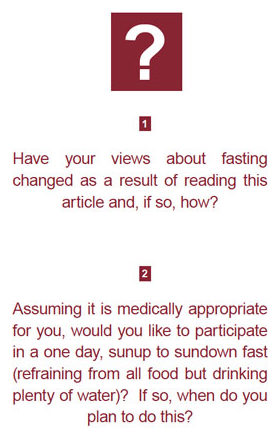 This points out one of the basic spiritual challenges for anyone who fasts: to exercise one’s reason and will to take authority over one’s body and its desires in order to walk by the Spirit and not the flesh.
This points out one of the basic spiritual challenges for anyone who fasts: to exercise one’s reason and will to take authority over one’s body and its desires in order to walk by the Spirit and not the flesh.
A good way to ease into fasting is to do several one-day partial fasts. For example, you could limit your eating to one piece of toast for breakfast, lunch, and supper, or you might drink only a small glass of juice at mealtimes. Always drink plenty of water when fasting. If possible, use the time you save at mealtimes to seek God in prayer or to read or meditate on Scripture.
When you are ready to move on to a one-day fast with no food but plenty of water, a good way to start is by skipping supper. If your last meal was lunch, you would wake up the next day with your body already well into your fast. That gives you all day to seek God in prayer and the word.
Resume eating at suppertime. It will help your digestive system if you eat relatively smaller quantities of easily digested food for a couple of meals. It is important to exercise self-control and not gorge on food, which might be a temptation for some. Become comfortable with doing one-day fasts before attempting multiple-day fasts.
For fasts longer than one day, you need to pay more attention to what you eat a couple of days before and for some days afterward (depending on how long you fast). This is particularly important when breaking the fast, because your digestive system has gone on “pause” and has reduced or stopped the production of various enzymes needed to process food. If you overeat or consume the wrong foods, you will pay the price.
For a three-day fast in which you drink water but eat no food, a couple of days before you begin, eat a soft diet of fruits, vegetables, grains, nuts, and other nutrients that will not clog your digestive system and are easy to expel; avoid any significant amounts of meat and cheese. Drink plenty of water during the fast. Break the fast gradually, starting with fruit or vegetable juice, then small amounts of easily digested foods, such as raw fruit (not citrus), applesauce, or yogurt. Avoid meat, greasy foods, and other foods that are hard to digest. And don’t overeat; discipline yourself to gradually resume normal eating.
In this article you have read enough to get started. However, if you want to do fasts with water longer than three days, or any fast with no food and no water, you would do well to read a good book or two on fasting and also consult a physician. If I could recommend only one book, it would be God’s Chosen Fast by Arthur Wallis, which is a helpful guide to the biblical, spiritual, and practical dimensions of fasting. Also helpful is A Hunger for God by John Piper, which provides an interesting, informative, and inspirational account of fasting in the Bible and throughout history. The two complement each other very well.
If you long for a deeper relationship with God or if you face a crisis or situation of special need, adding fasting to your prayer is a way God has given us to seek Him more earnestly. If you make fasting a regular part of relationship with God, you will never regret it. For He has said, “You will seek me and find me, when you seek me with all your heart” (Jer. 29:13).
|
Notes: |
|||

Thomas A. Tarrants
Author, President Emeritus, CSLI Thomas A. Tarrants is President Emeritus of the C.S. Lewis Institute. After serving twelve years as president and nine years as vice President, he retired from his position as Vice President for Ministry and Director, Washington Area Fellows Program, with CSLI in June 2019. He holds a Masters of Divinity Degree, as well as a Doctor of Ministry Degree in Christian Spirituality. Tom is an ordained minister in the Evangelical Church Alliance and a member of the Evangelical Theological Society. He spends his time writing, mentoring, consulting and traveling. His life story is told in Consumed by Hate, Redeemed by Love, published by Thomas Nelson Publishers.Recommended Reading:
John Piper, A Hunger for God: Desiring God through Fasting and Prayer (Crossway, Redesign edition, 2013)
Our appetites dictate the direction of our lives — whether it be the cravings of our stomachs, the passionate desire for possessions or power, or the longings of our spirits for God. But for the Christian, the hunger for anything besides God can be an archenemy, while our hunger for God — and Him alone — is the only thing that will bring victory.
Do you have that hunger for Him? As John Piper puts it: “If we don’t feel strong desires for the manifestation of the glory of God, it is not because you have drunk deeply and are satisfied. It is because we have nibbled so long at the table of the world. Our soul is stuffed with small things, and there is no room for the great.” If we are full of what the world offers, then perhaps a fast might express, or even increase, our soul’s appetite for God.
Between the dangers of self-denial and self-indulgence is this path of pleasant pain called fasting. It is the path John Piper invites you to travel in this book. For when God is the supreme hunger of your heart, He will be supreme in everything. And when you are most satisfied in Him, He will be most glorified in you.
Arthur Wallis, God’s Chosen Fast (CLC Publications, 2016)
First published in 1968, God’s Chosen Fast has long been considered the essential guide to biblical fasting, a vital yet often neglected practice. With simplicity and straightforwardness, Arthur Wallis shares what the Bible says about fasting.
It is not merely a how-to manual, but a timeless reference that explains the purpose of fasting, details accounts of fasting in the Bible, and includes a comprehensive biblical index. God’s Chosen Fast will assist believers who desire to grow closer to God.
 COPYRIGHT: This publication is published by C.S. Lewis Institute; 8001 Braddock Road, Suite 301; Springfield, VA 22151. Portions of the publication may be reproduced for noncommercial, local church or ministry use without prior permission. Electronic copies of the PDF files may be duplicated and transmitted via e-mail for personal and church use. Articles may not be modified without prior written permission of the Institute. For questions, contact the Institute: 703.914.5602 or email us.
COPYRIGHT: This publication is published by C.S. Lewis Institute; 8001 Braddock Road, Suite 301; Springfield, VA 22151. Portions of the publication may be reproduced for noncommercial, local church or ministry use without prior permission. Electronic copies of the PDF files may be duplicated and transmitted via e-mail for personal and church use. Articles may not be modified without prior written permission of the Institute. For questions, contact the Institute: 703.914.5602 or email us.
-
Recent Podcasts
Ralph Waldo Emerson’s Philosophy and Influence
by David George Moore on July 26, 2024Ralph Waldo Emerson was a gifted nineteenth century...Read More
-
The Side B Stories – Nate Sala’s Story
by Jana Harmon, Nate Sala on July 19, 2024
-
Terrorism Through the Eyes of Faith
by Dennis Hollinger on July 12, 2024
-
Recent Publications
Hasn’t Science Proven That Belief in God Is an Outdated Superstition?
by Sharon Dirckx on July 1, 2024Many assume that scientific practice and belief in...Read More
-
Has the Bible Been Corrupted as Some Muslims Claim?
by Andy Bannister on June 1, 2024
-
Seeing Jesus Through the Eyes of Women
by Rebecca McLaughlin on May 15, 2024
0
All Booked
0.00
All Booked
0.00
All Booked
22194
C.S. Lewis’s The Abolition of Man Live Online Small Group 8:00 PM ET
https://www.cslewisinstitute.org/?event=c-s-lewiss-the-abolition-of-man-study-course&event_date=2024-10-02®=1
https://www.paypal.com/cgi-bin/webscr
2024-10-02

Next coming event
Days
Hours
Minutes
Seconds
C.S. Lewis’s The Abolition of Man Live Online Small Group 8:00 PM ET
On October 2, 2024 at 8:00 pmSpeakers

Thomas A. Tarrants
Author, President Emeritus, CSLI
Team Members




